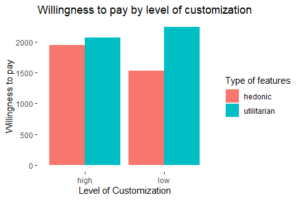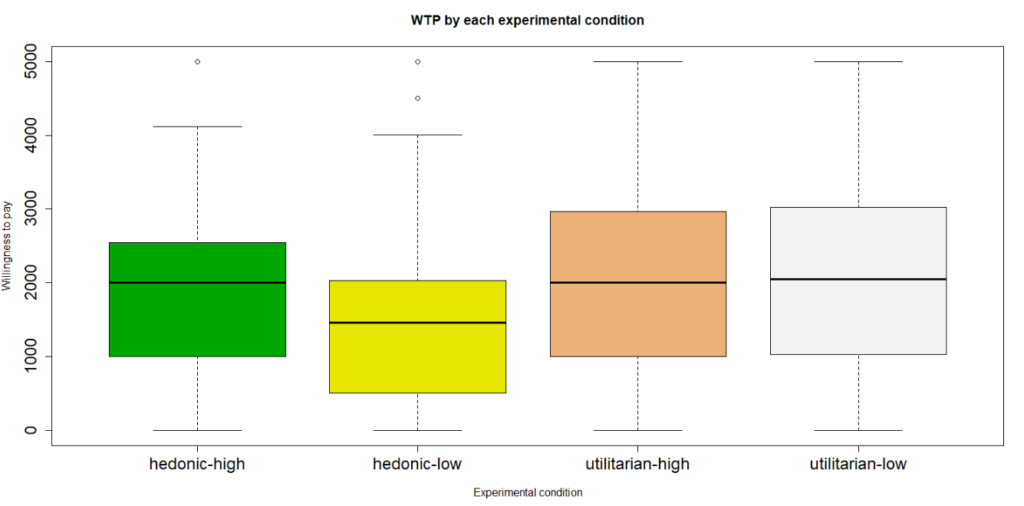
Francisco Riaño
MSc Thesis – Customization as a business tool to preserve psychological ownership and enhance willingness to pay.
- Francisco Riano
The whole document, data, and R file could be found at: https://github.com/FranciscoRiano/thesis_mkt_analytics
To what extent is the relationship between the level of customization and willingness to pay explained by psychological ownership, and what is the moderating role of the type of features used to customize products on the relationships between the level of customization and both; willingness to pay and psychological ownership?
Motivation
Customization can lead to an increment in customer loyalty and willingness to pay, reduce operational costs and widen the customer net. Additionally, current literature proposes customization as an alternative to protect psychological ownership which is threatened by recent changes in consumption patterns. Despite the potential of customization and the importance of psychological ownership, companies often struggle to deliver customized products or services to their customers, this is produced because organizations are not well enough oriented in the search for the level and type of features that are the most appealing by users, at the time to customize a good.
Current literature has found that in fact, customers are willing to pay premium prices for customized products (Franke et al., 2009; Schreier, 2006); this study goes far beyond and tries to understand if this relationship between customization and willingness to pay is explained by psychological ownership. Additionally, other contributions such as the ones made by Dhar &Wertenbroch (2000) or Shu & Peck (2011), have stated that users are more influenced by hedonic products than utilitarian ones. The present research uses an attribute-specific level approach to understand if hedonic features are preferred, by customers, over utilitarian ones at the time to customize a Ford Fiesta 2022 vehicle.
Method – Experimental research design
To test the stated hypotheses, an online experiment was carried out using a sample of 260 respondents, collected through Prolific platform. The experiment included two treatment variables, and each variable has 2 conditions; therefore, it was a 2×2 online between-subject design experiment. The respondents were randomly assigned to each of the 4 experimental conditions and were able to customize the Ford Fiesta 2022 vehicle based on the conditions given. Afterward, they were required to fill out a questionnaire that was used as a guide to measuring psychological ownership. Finally, they were asked to give their willingness to pay for the customized product.

Results and conclusions
In order to analyze the data some ANOVA tests were run but the whole model was assessed using PROCESS macro developed by Hayes (2022). The results were quite surprising because some of them were not aligned with the theory previously exposed. For instance, a direct significant relationship between the level of customization and willingness to pay was not found, also it was stated that the utilitarian attributes were more appealing than hedonic ones when participants were asked to use them to customize the vehicle. Finally, a mediating role of psychological ownership was not found.


The conclusions of this study are aligned with contributions made by Dellaert & Stremersch (2005) who said that the preferred mass customization configuration may vary depending on product context. In this case, the number of customized attributes was not relevant enough and the preferred type of features to customize were the utilitarian ones, but again these parameters could be different for other product categories. Additionally, these conclusions are aligned with Morewedge et al (2021), who stated that psychological ownership and willingness to pay are positively related; and again with Dellaert & Stremersch (2005) who said that expert customers are a potentially appealing target sector for mass customization, given that the prior knowledge about cars held by respondents, which was treated as a covariate, was significantly and positively related with both, psychological ownership and willingness to pay.